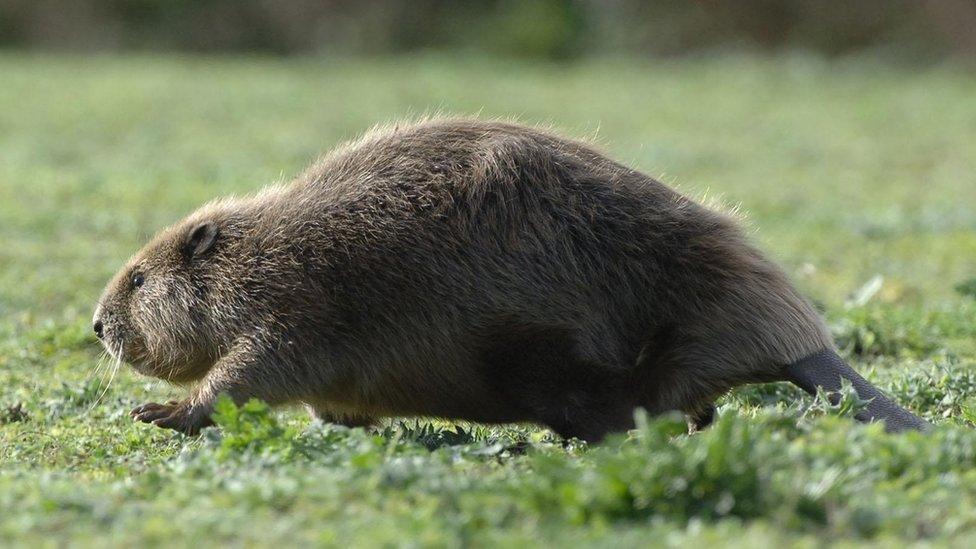Beavers in Essex doing 'better job' of making flood defences
- Published
The Environment Agency said the beavers have plenty of trees to get their teeth stuck into
A pair of beavers released into the wild are doing a "better job" than humans at making flood defences.
The Eurasian Beavers, which were bred in captivity, were introduced at the Spains Hall Estate in Finchingfield, Essex, in March, and have built seven dams.
It is the first time the animals have been in the wild in Essex in 400 years.
The Environment Agency said it was a "pioneering approach" to reduce local flooding.
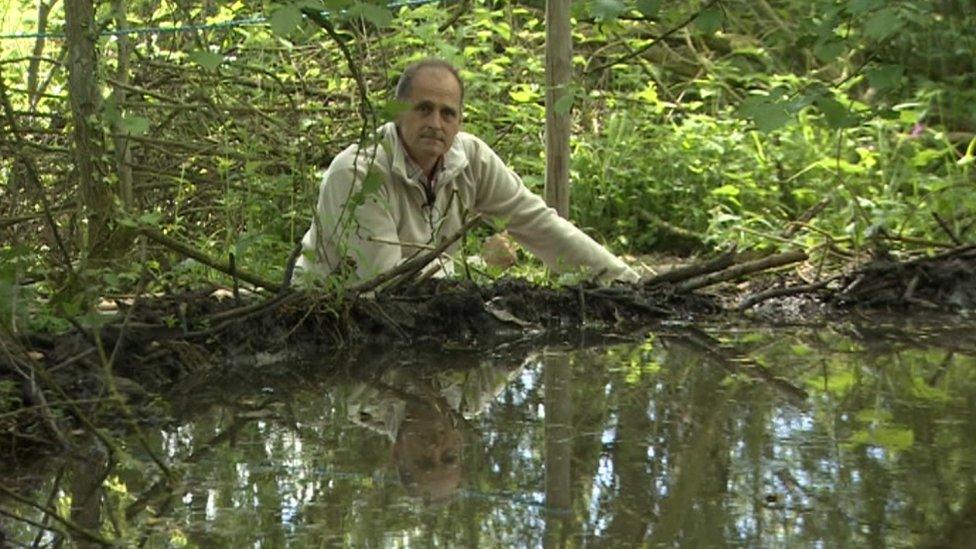
The beavers have created seven dams, using sticks and mud, which seem to be holding water effectively
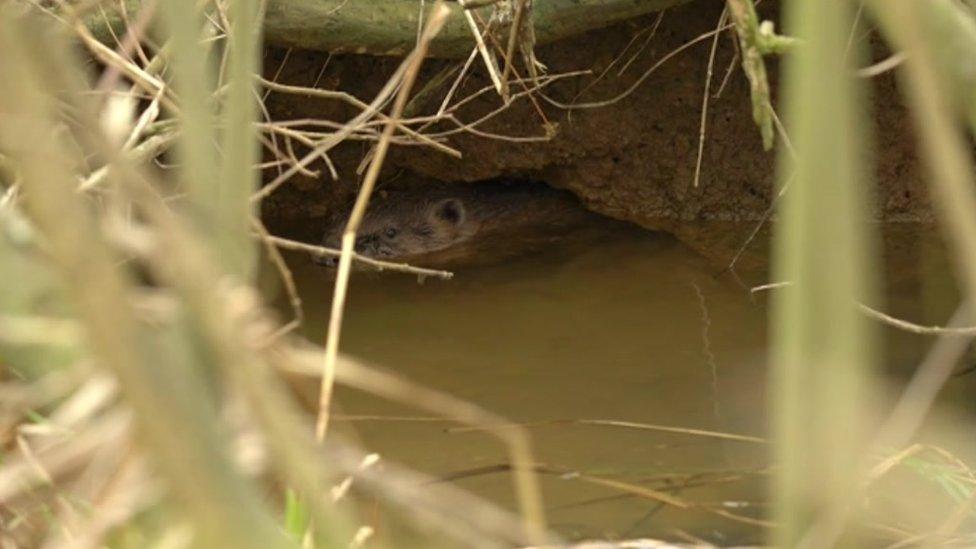
The beavers have been exploring their new home at the Spains Hall Estate in Finchingfield for the last two months
The beavers were bred in Devon before being released into woodland at the estate.
Finchingfield, near Braintree in north Essex, was flooded in 2014 and 2012.
Archie Ruggles-Brise, owner of the estate, said he was shown research on beavers in Devon, which concluded they had reduced the risk of flash floods, and thought "well go on then, let's give it a go".
He said: "We didn't have to bring in diggers or chainsaws - we're just letting the beavers do it.
"They are doing a far better job than we could anyway."
The effectiveness of the beavers' dams has yet to be tested because there have been no significant downpours so far this year, but they are holding the water at a higher level upstream.
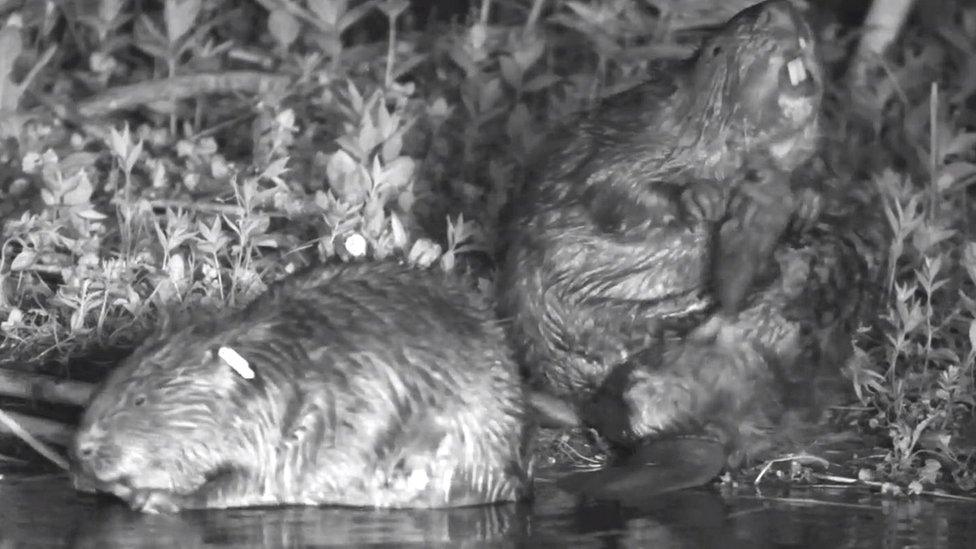
Wildlife photographer Russell Savory said watching the beavers at night was a "delight"
It is believed the woodland could support up to nine beavers.
The estate does not yet know if the female beaver is pregnant, but if she is, she could give birth in early July.
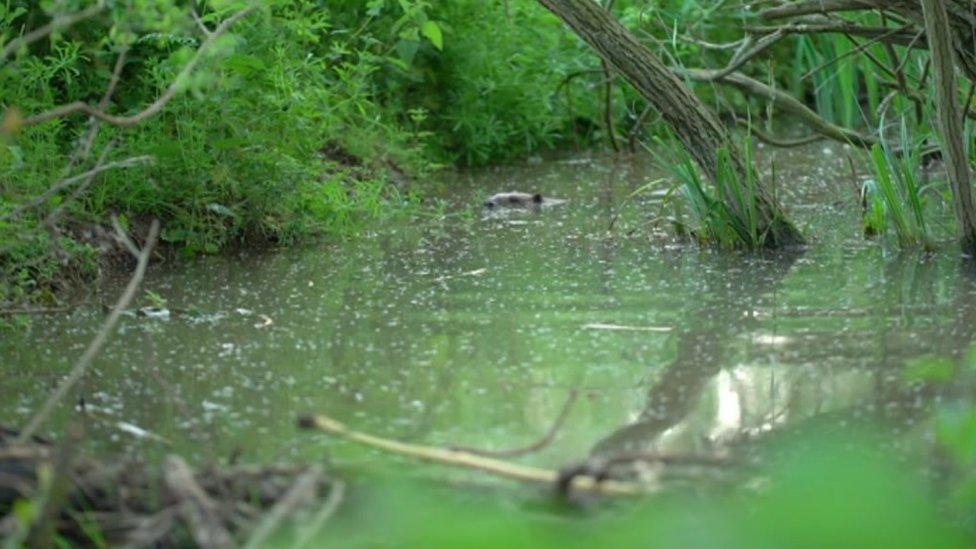
Results from a trial in Devon show muddy water entering a beaver wetland is three times cleaner when it leaves
The mammals were hunted to extinction in England centuries ago but have since been gradually reintroduced.
Beavers were hunted for their fur, meat and scent glands until the beginning of the 16th Century in England.
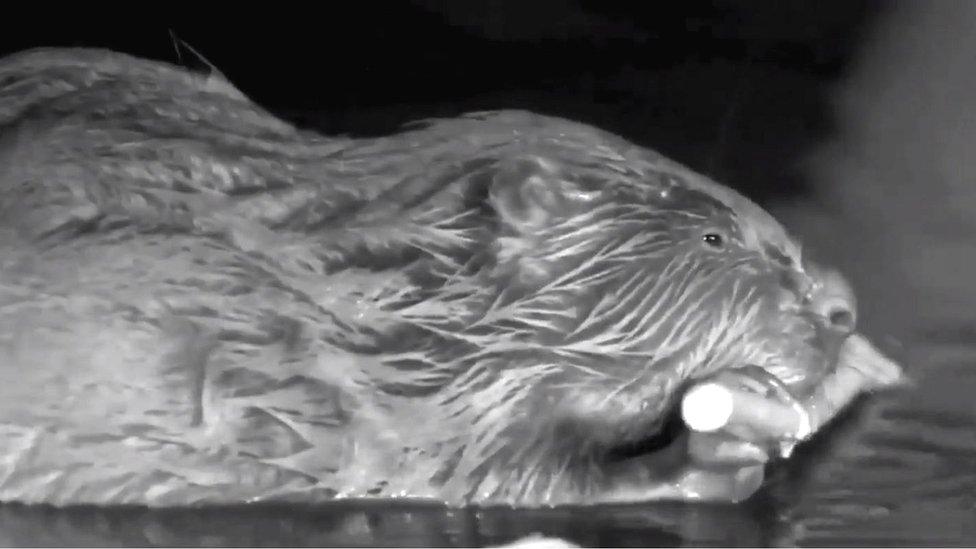
The mammal had been reintroduced in small numbers in other parts of the country in recent years, but this is a first for Essex
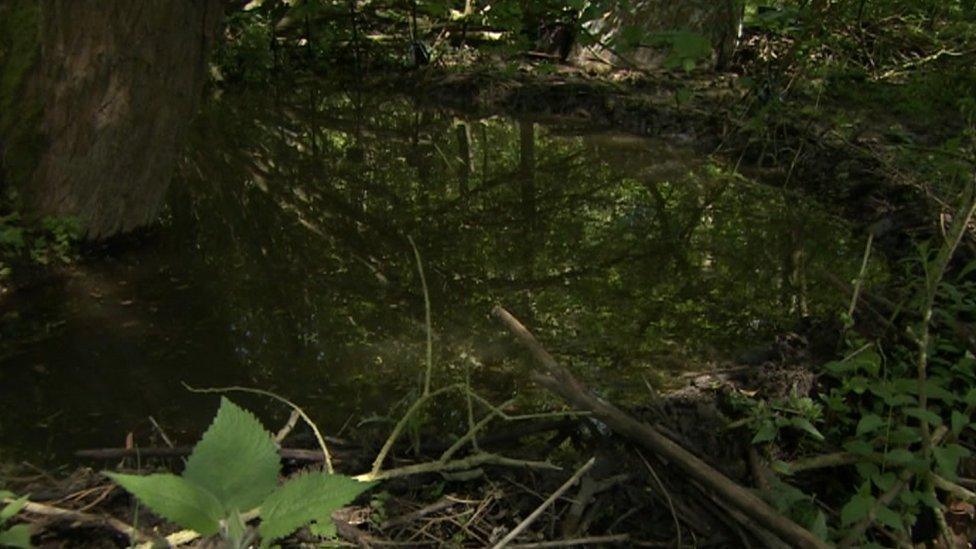
One of the beavers' dams - built in a semi-circle shape on the right of the picture
- Published17 March 2019
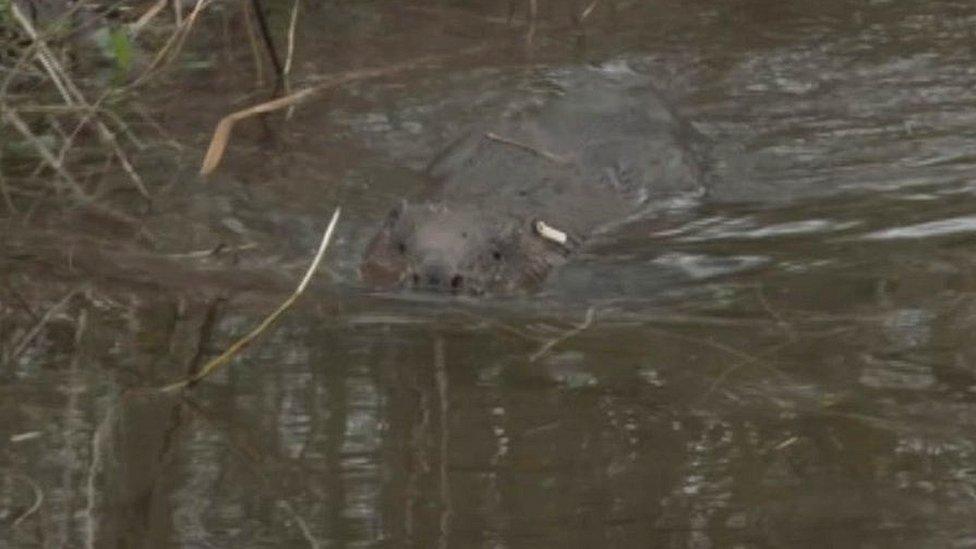
- Published5 November 2018
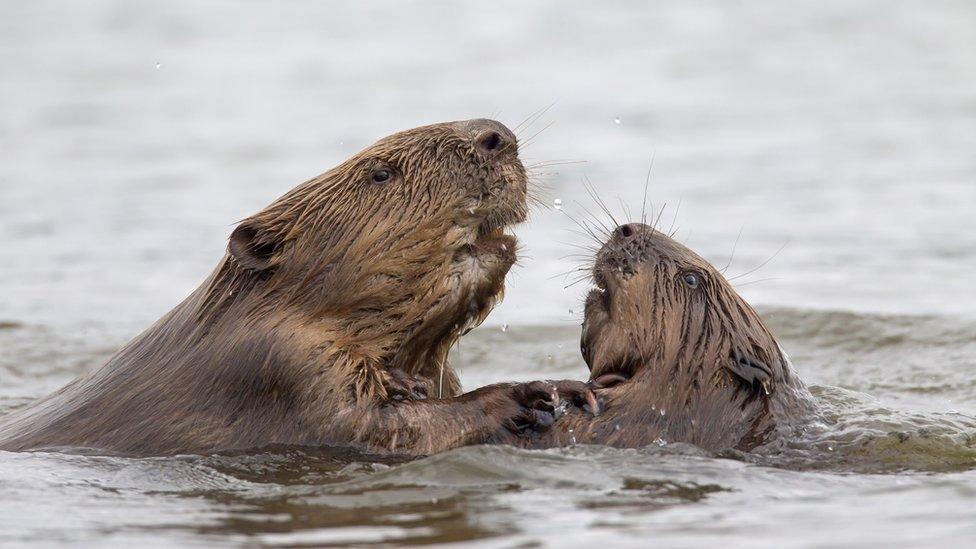
- Published3 June 2017
